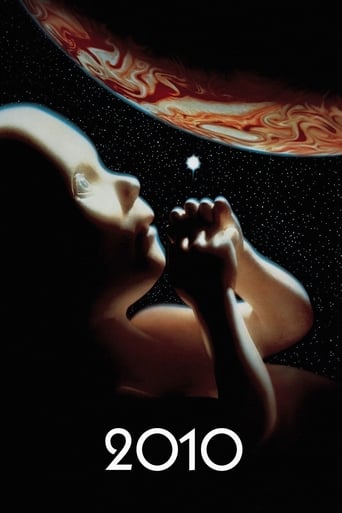In the very near future, a small group of Americans and Russians set out on the greatest adventure of them all...to see if there is life beyond the stars.
2010: The Year We Make Contact kể về sự hợp tác bất đắc dĩ giữa Mỹ và Liên Xô để tìm hiểu nguyên nhân tai nạn 9 năm trước, việc cả một phi hành đoàn trên con tàu Discovery đã bị mất liên lạc khi đã tiếp cận được mặt trăng Europa của Sao Mộc. Lần này 1 phi hành đoàn khác được gửi đến Sao Mộc bằng phi thuyền Leonov của Liên Xô do cơ trưởng Tanya Kirbuk (Helen Mirren) nắm quyền với nhiệm vụ tìm kiếm con tàu Discovery và tìm hiểu những bí mật còn dang dở có thể đang nằm trong chiếc siêu máy tính có trí thông minh nhân tạo HAL 9000. Nhiệm vụ có vẻ dễ dàng khi các nhà khoa học Mỹ của tiến sĩ Heywood Floyd (Roy Scheider) cùng phi hành đoàn tiếp cận được con tàu Discovery và tái khởi động HAL 9000. Thế nhưng càng đi sâu vào phân tích dữ liệu, những bí mật ghê gớm về cỗ máy tính siêu thông minh đã dần hé lộ. Liệu lần này các phi hành gia có chung số phận với phi hành đoàn 9 năm trước đây không?
*Nếu bộ phận kiểm duyệt của chúng tôi phê duyệt phiên bản của bạn, nó sẽ được thay thế và bạn sẽ được ghi công là tác giả của văn bản.
Năm:1984
Ngân sách28000000$
Thời lượng116 phút
Doanh thu40400000$
Thể loạiPhim Gây CấnPhim Khoa Học Viễn Tưởng
Các quốc gia sản xuấtUnited States of America

